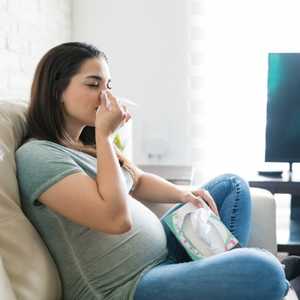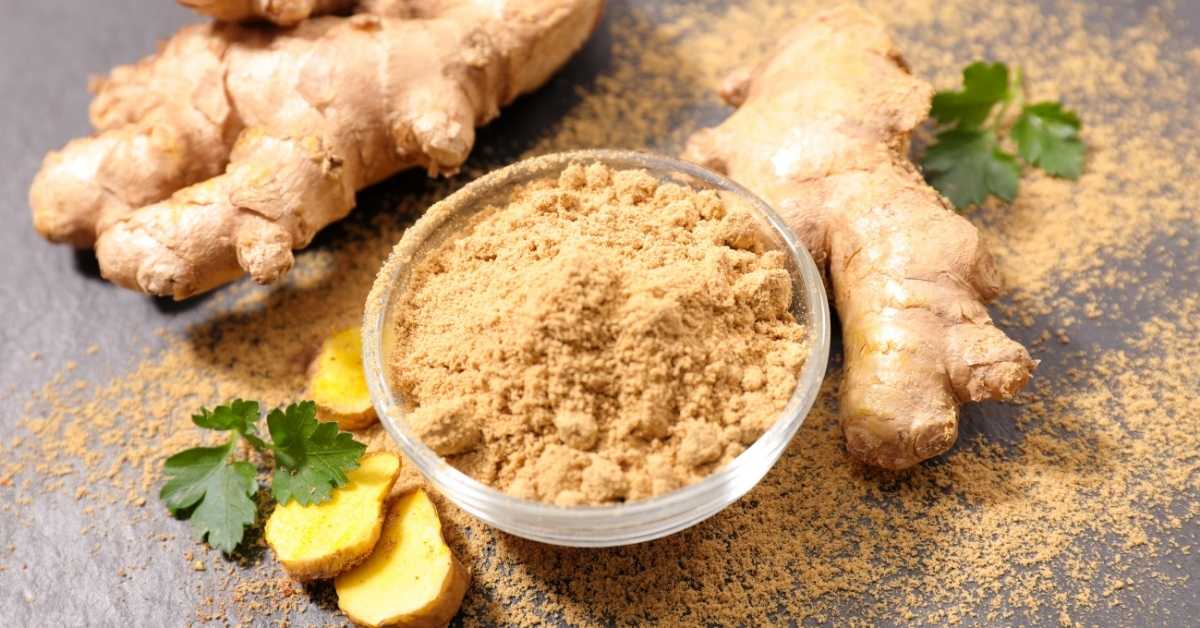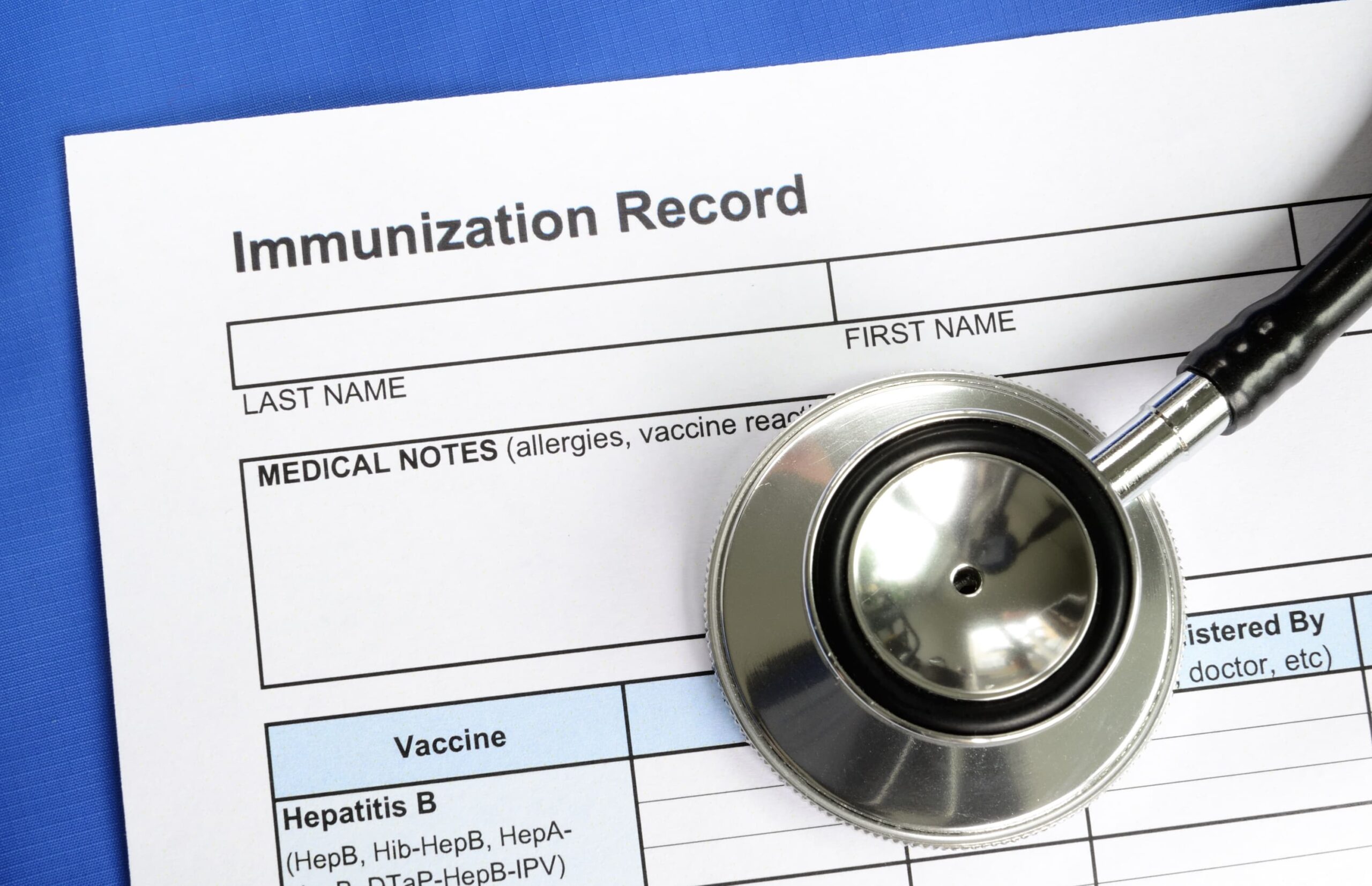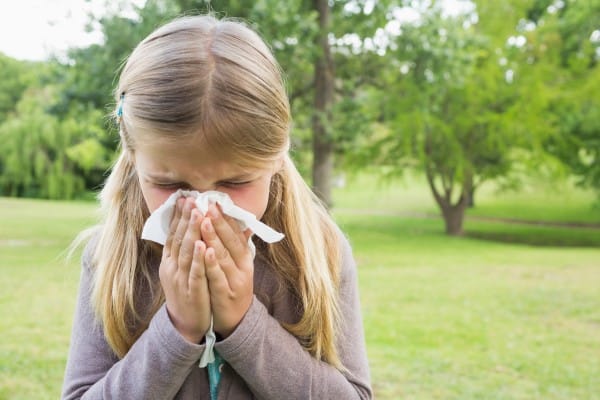Seasonal allergies can interfere with your quality of life and may get worse during pregnancy. Allergies occur in 20-30% of pregnant women! Unfortunately, antihistamines come with a few unpleasant side effects, and some antihistamines may not be safe to take while pregnant.
New research shows that ginger root may be as effective as loratadine (aka Claritin) for treating seasonal allergies. Ginger root has the benefit of being safe for pregnant and lactating women, and it also has fewer side effects than conventional antihistamine medications.
How Much Ginger Is Needed To Treat Seasonal Allergies?
In the study looking at the efficacy of ginger for treating seasonal allergies, people were given 250 mg of ginger twice per day for six weeks. This treatment was compared with a placebo and with standard loratadine treatment.

After 6 weeks, ginger and loratadine resulted in the relief of allergy symptoms (eg. itching, runny nose, nasal congestion, and sneezing). However, ginger had the additional benefit of increasing nasal volume (probably by decreasing inflammation).
If you’re considering taking ginger for allergy relief, make sure to discuss it with a healthcare provider first, and try it for at least one to two months. The study showed that the effects of ginger treatment improved over time.
Seasonal allergies are best treated with an integrated approach that takes into account the underlying causes of allergies.
Read more: A Natural Approach To Seasonal Allergies – Dr. Green Mom
A Note About The Safety Of Ginger While Breastfeeding & Pregnant
Ginger During Pregnancy
Ginger is commonly taken by pregnant women for relief of nausea symptoms. Most of the safety studies about consuming ginger during pregnancy have looked at doses of 1000mg– 1500 mg per day or less. This is much higher than the dose studied as a treatment for allergic rhinitis (250 mg, twice per day).
Ginger has some possible side effects, the most important of which is blood thinning. Because ginger is a blood thinner, it should be stopped at least 2-3 weeks before birth. It should also be avoided if there is any vaginal spotting or if taking pain medication or other anticoagulants. Ginger may also cause or worsen heartburn which is a significant concern during pregnancy.
Though many experts, including this author, consider ginger quite safe during pregnancy, there are other experts who disagree. As with all medical decisions, the question of whether or not to take ginger while pregnant should be discussed with a healthcare provider who can go over the pros and cons.
Ginger While Breastfeeding
Ginger is commonly consumed worldwide and considered likely safe during breastfeeding. In Turkey and some parts of Asia, ginger is traditionally taken to increase milk supply. Research affirms the traditional practice of using ginger to increase breast milk supply.
Summary
New research shows that ginger may be a safe and effective treatment for seasonal allergies (aka allergic rhinitis). The dose studied was 250 mg of ginger twice per day for six weeks. Ginger has the benefit of being quite safe for pregnant and breastfeeding women. Ginger is best used as part of a holistic approach to treating seasonal allergies.
References:
Yamprasert, R., Chanvimalueng, W., Mukkasombut, N., & Itharat, A. (2020). Ginger extract versus Loratadine in the treatment of allergic rhinitis: a randomized controlled trial. BMC complementary medicine and therapies, 20(1), 119. https://doi.org/10.1186/s12906-020-2875-z
Kar S, Krishnan A, Preetha K, Mohankar A. A review of antihistamines used during pregnancy. J Pharmacol Pharmacother. 2012 Apr;3(2):105-8. doi: 10.4103/0976-500X.95503. PMID: 22629082; PMCID: PMC3356948.
Gonzalez-Estrada, A., & Geraci, S. A. (2016). Allergy Medications During Pregnancy. The American journal of the medical sciences, 352(3), 326–331. https://doi.org/10.1016/j.amjms.2016.05.030
Viljoen, E., Visser, J., Koen, N., & Musekiwa, A. (2014). A systematic review and meta-analysis of the effect and safety of ginger in the treatment of pregnancy-associated nausea and vomiting. Nutrition journal, 13, 20. https://doi.org/10.1186/1475-2891-13-20
Ginger. (2022). In Drugs and Lactation Database (LactMed). National Library of Medicine (US).
Shawahna R, Taha A. Which potential harms and benefits of using ginger in the management of nausea and vomiting of pregnancy should be addressed? a consensual study among pregnant women and gynecologists. BMC Complement Altern Med. 2017 Apr 8;17(1):204. doi: 10.1186/s12906-017-1717-0. PMID: 28390419; PMCID: PMC5385053.
Stanisiere, J., Mousset, P. Y., & Lafay, S. (2018). How Safe Is Ginger Rhizome for Decreasing Nausea and Vomiting in Women during Early Pregnancy?. Foods (Basel, Switzerland), 7(4), 50. https://doi.org/10.3390/foods7040050







